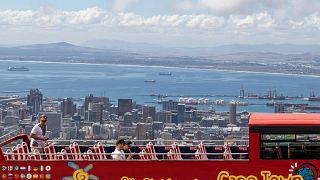South Africa
Waves, wind and just pure nature. The ocean offers the perfect sanctuary for tranquility and mindfulness. In Cape Town, South Africa, a handful of people practice bodysurfing. The little-known sport is practiced without boards or bragging.
"Freedom... Absolute freedom. Just you, and the surf, figure out where you have to be, what you have to do and just ride the wave, ride the ocean, it's about being... It's just you and the sea. It's great", said bodysurfer, Anthony Pearse.
Glen Thompson is a historian of surf at the Stellenbosch University. He recalls the long history of bodysurfing.
''Bodysurfing has a long history into pre-colonial Polynesian culture and even into pre-colonial African culture, coastal cultures, which have documented ships records when the Europeans were coming to do the early voyage of discovery and started to trade along the west coast of Africa. So Africa does have the usage of the sea for pleasure... Cause that’s what bodysurfing is all about", Thompson said.
At his workshop, Cobus Joubert is shaping for wawa surfboards. A bodysurfer himself, he has his own theory of why the sports is little-known.
"I think it’s just that the big companies, the big corporates have not really discovered it. I think it’s too basic, it’s too simple... and in my words it’s too pure for them. Because there’s too little product, there’s too little probably profit for them to make", the bodysurfer said.
Some bodysurfers use paddles attached to their hands to improve stability.
Other bodysurfers would rather stick to outstretched arms and fingers to enjoy the sport.
For some bodysurfers, because the sport involves less people and its not crowded, it’s just easier.











02:22
Cameroonian marine conservationists trained as scientific divers
01:34
EU commits €1 billion to protect oceans under a new pact
01:30
Macron sparks global push to protect oceans
01:00
Renewed calls to end plastic pollution on World Environment Day
Go to video
South African town wakes up to elephant seal hobbling down its streets
01:17
South African swims around Martha's Vineyard to raise awareness of need to protect sharks